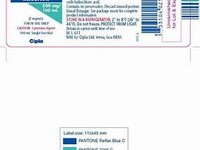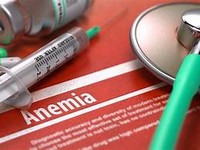Etomidate

Etomidate
CLINICAL USE
Induction of anaesthesiaDOSE IN NORMAL RENAL FUNCTION
150–300 mcg/kgPHARMACOKINETICS
DOSE IN RENAL IMPAIRMENT
GFR (mL/MIN)
DOSE IN PATIENTS UNDERGOING RENAL REPLACEMENT THERAPIES
IMPORTANT DRUG INTERACTIONS
Potentially hazardous interactions with other drugsAdrenergic neurone blockers: enhanced hypotensive effectAntihypertensives: enhanced hypotensive effectADMINISTRATION
Reconstition
Route
Intravenous injection onlyRate of Administration
–Comments
–OTHER INFORMATION
In cases of adrenocortical gland dysfunction and during very long surgical procedures, a prophylactic cortisol supplement may be required (e.g. 50–100 mg hydrocortisone)
See how to identify renal failure stages according to GFR calculation
See how to diagnose irreversible renal disease
Home








